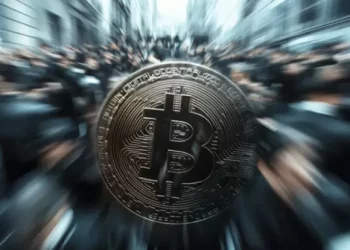A Troubling Turn of Events
The controversy erupted when a Chinese investor, who shared his experience on Xiaohongshu, alleged that Coinbase liquidated his Bitcoin assets despite his recent account activity. The user, known only as the original poster (OP), had initially invested around ¥200,000 in Bitcoin in 2017 with a long-term holding strategy. Over time, he faced substantial losses due to market volatility, reducing his holdings from 2 BTC to 0.5 BTC by early 2018.
By late 2021, concerned about the security of his investments on platforms like Huobi and Binance, the OP transferred his remaining assets to Coinbase. However, in June 2024, he discovered that his account was inaccessible. Coinbase informed him that his account had been closed, and his Bitcoin had been liquidated and transferred to a Wyoming institution as “unclaimed property” due to inactivity.
Disputed Inactivity
The OP contended that he had accessed his account in February and March 2024, challenging Coinbase’s claim that the account was inactive. According to Coinbase’s policy, which adheres to state laws, accounts deemed inactive for 3-5 years are classified as unclaimed property. Despite the OP’s login records, customer service dismissed his claims, directing him to Wyoming’s Unclaimed Property Division for resolution.
Community Reactions and Potential Remedies
The revelation has incited significant outrage and concern among the cryptocurrency community. Many users have voiced their frustration, emphasizing the critical need for personal control over digital assets. One Redditor noted, “Not your keys, not your coin,” a sentiment echoed by the OP, who agreed with the statement.
Others have suggested potential legal avenues for addressing the issue. Suggestions included filing lawsuits against Coinbase, lodging complaints with regulatory bodies like the SEC and FINRA, or seeking compensation through legal channels. Some argued that, given Coinbase’s public company status, there are multiple ways to challenge their practices.
Conversely, a different perspective highlighted the legal framework in the U.S. for reclaiming unclaimed property. According to this view, the OP may still recover his funds, as U.S. law allows for the reclamation of unclaimed property by proving one’s identity. This perspective reassured some community members, who noted that the system is designed to protect rather than permanently confiscate assets.
Conclusion
The incident underscores the complexities and risks involved in managing digital assets on exchanges. While the possibility of recovering the unclaimed Bitcoin remains, the case highlights the importance of understanding and navigating the policies of cryptocurrency platforms to safeguard one’s investments.
Related topics:
Bitcoin Miner Marathon Digital Hit with $139 Million Fine; MARA Stock Dips 2.5%
Shytoshi Kusama Exposes Crypto’s Error with Shiba Inu’s TREAT Token
DeFi TVL Skyrockets 72% to $94 Billion in 2024, Says Binance Report

















